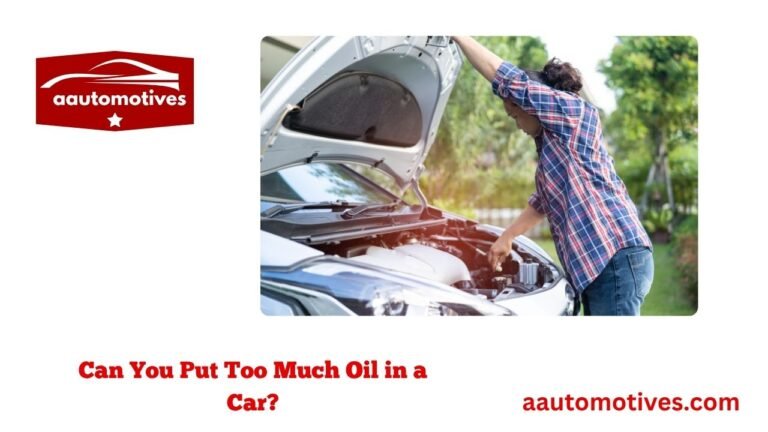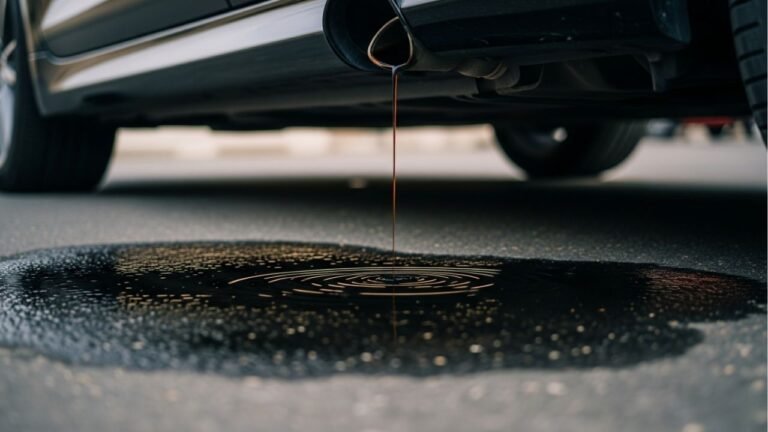Valvoline vs Pennzoil: My Honest Take on Both
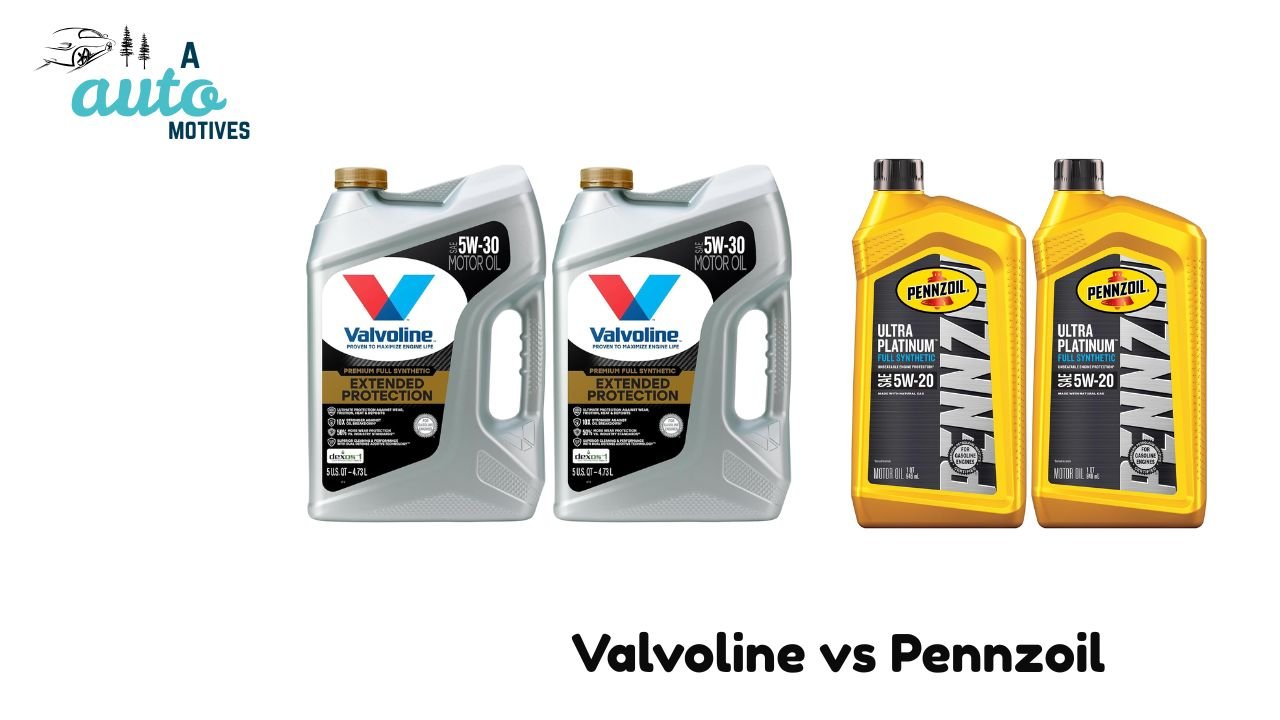
When it comes to cars, people will argue about everything—from the best tires to the quietest wipers. But if you’ve ever stood in the oil aisle at Walmart or scrolled endlessly on Amazon, you know engine oil debates are in a league of their own. And the two names that keep coming up? Valvoline and Pennzoil.
Now, I’ve personally used both in my cars over the years—Valvoline in my old Toyota Camry and Pennzoil in my Honda Accord and Ford truck. So, this isn’t theory or marketing fluff. This is my real, behind-the-wheel experience. I’ve put both oils to the test in blazing Texas summers, icy Midwest mornings, and stop-and-go city traffic that makes you want to scream. And I want to share exactly what I’ve found.
So, let’s dive in and talk about Valvoline vs Pennzoil, not from a lab test, but from the view of someone who actually relies on them to get from Point A to Point B without blowing up their engine.
Is Valvoline Good Oil?
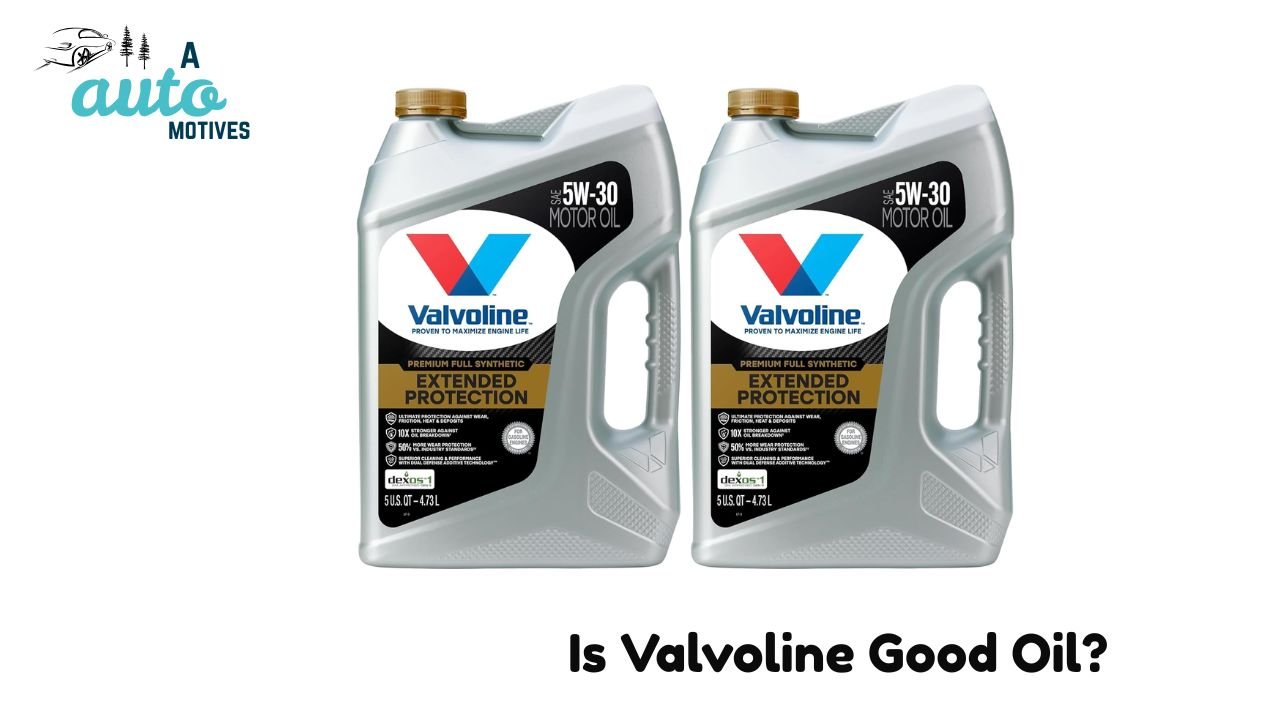
I’ll start with Valvoline, because it was the first premium oil I ever tried. Before that, I was one of those drivers who grabbed whatever was on sale, poured it in, and called it a day. But a mechanic friend pulled me aside one day and said, “If you want your car to last past 200K miles, stop treating oil changes like an afterthought.”
That stuck with me.
The first Valvoline oil I used was Valvoline Advanced Full Synthetic 5W-30. Right away, I noticed something different. The engine felt smoother. The noise at idle? Quieter. And fuel efficiency nudged upward—not by a lot, but enough to notice over a few tanks of gas.
But the real test came on a road trip. I drove from Texas to Colorado, which means long stretches of highway, steep mountain climbs, and unpredictable weather. My engine stayed cool the whole time, even when I was pushing it hard going up hills. That was when Valvoline earned my trust.
And let me tell you, when you wake up to a sub-zero morning in the Midwest and your car fires up on the first try? That’s when you silently thank your motor oil.
Why I Like Valvoline
Here are the big wins I’ve noticed with Valvoline:
-
Engine protection that works – It reduces wear, keeps sludge at bay, and generally makes the engine feel “healthy.”
-
High-mileage benefits – If your car has seen better days, Valvoline seems to give it a second wind. My old Camry with 180K miles ran like it had a new lease on life.
-
Cold-weather reliability – Even in brutal winters, my Toyota always started without hesitation.
-
Longer intervals – I wasn’t rushing to change oil every 3,000 miles. It comfortably stretched between services.
-
Easy availability – Auto parts stores, Walmart, Amazon—you name it, Valvoline is there.
What Could Be Better
Now, I’ll be honest. Valvoline isn’t perfect.
-
Price – It’s definitely more expensive than basic oils.
-
Not built for extreme performance cars – If you’re running a track car or a turbocharged European machine, you might need something more specialized.
-
Older engines sometimes prefer conventional – Classic car owners often avoid synthetics, and Valvoline doesn’t always cater to that crowd.
Should You Use Valvoline?
If you’re an everyday driver—whether you’re crawling through city traffic, hauling on highways, or battling weather extremes—Valvoline is a fantastic choice. It’s especially good if you’ve got a high-mileage car or one that’s seen better days but still has fight left.
However, if you’re building a race car or babying a vintage engine, you might want to look elsewhere.
At the end of the day, though, Valvoline is one of the most trusted oil brands in America for a reason. It just works.
Is Pennzoil Good Oil?
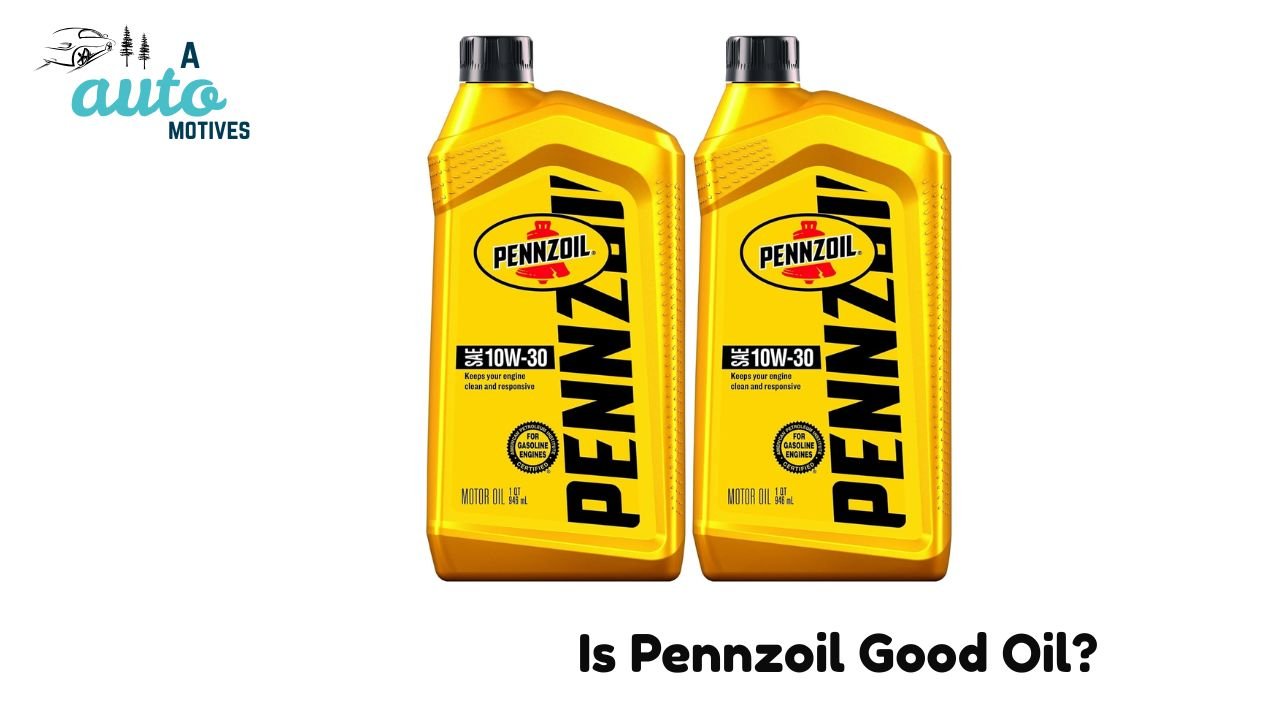
Now let’s switch gears and talk about Pennzoil. I’ll admit, I was a little skeptical when I first heard about it being made from natural gas. I thought, “That’s a marketing gimmick, right?” But after actually using it, I was proven wrong.
I poured Pennzoil Platinum Full Synthetic 5W-30 into my Accord before a long summer road trip. The first thing I noticed? The oil stayed cleaner for longer. Even after thousands of miles, it didn’t look like black tar when I checked the dipstick. That’s a big deal because clean oil means less sludge and better engine health.
Pennzoil uses something called PurePlus Technology, where they turn natural gas into synthetic base oil. It’s not just clever branding—it actually makes for a cleaner, purer oil. And when you combine that with the additives Pennzoil uses, you get strong protection against wear, deposits, and overheating.
In day-to-day driving, I found Pennzoil gave me slightly better fuel economy. It wasn’t a massive jump, but in city stop-and-go traffic, every extra mile per gallon feels like a win. And when winter rolled around, my car started effortlessly, even on mornings when the frost covered every inch of glass.
What I Like About Pennzoil
Here’s what Pennzoil brings to the table:
-
Engine cleanliness – It keeps internals remarkably clean, even after extended use.
-
Fuel economy boost – Helps squeeze out extra efficiency, which adds up over time.
-
Extreme weather performance – Handles both summer heat and winter cold without breaking a sweat.
-
Widely available – Just like Valvoline, you can find it in stores or online.
-
Premium oil without a premium price – Cheaper than some boutique brands but still top-notch.
What Could Be Better
Of course, Pennzoil isn’t flawless either.
-
Still more expensive than conventional – If you’re on a very tight budget, it may feel pricey.
-
Not ideal for all cars – Some high-performance European vehicles require oils that Pennzoil doesn’t cover.
-
Packaging design – I’ve had a few messy spills due to awkward bottle spouts.
Should You Use Pennzoil?
If you want an oil that’s all about cleanliness, efficiency, and long-term protection, Pennzoil is a strong pick. It’s especially great if you rack up highway miles or drive in places with harsh winters or scorching summers.
But if you’re running a performance engine that needs very specific European-approved formulas, you might need a different brand.
For most daily drivers, though, Pennzoil strikes an excellent balance of quality, availability, and affordability.
Valvoline vs Pennzoil: Which One is Better?
Now for the question you’ve been waiting for—which one is better?
Here’s the truth: both are excellent oils, but they shine in slightly different ways.
Valvoline feels like that reliable old friend who always shows up when you need them. It’s dependable, strong, and especially great for high-mileage cars. On the other hand, Pennzoil feels like the polished new neighbor who not only helps you move but also gives you tips on saving money on your power bill. It’s cleaner, more efficient, and built with future-facing technology.
Performance in Different Conditions
-
Cold starts: Pennzoil has the edge. It flows faster in sub-zero temps, which means easier starts in freezing weather.
-
High heat: Both hold up well, but Pennzoil seems to resist breakdown just a bit better.
-
Stop-and-go traffic: Pennzoil’s friction modifiers give it the advantage in fuel efficiency.
-
High-mileage engines: Valvoline has stronger additives for wear protection, making it the better choice for cars with 100K+ miles.
My Personal Experience
When I was driving my high-mileage Camry, Valvoline was my go-to. It helped seal tiny leaks, kept the engine quiet, and made me feel confident it would hit 200K miles.
But when I switched to Pennzoil in my newer Honda Accord, I felt the difference in smoothness and fuel economy. It just felt more “refined,” especially on longer drives.
So if I had to simplify it:
-
For older cars or heavy-duty use, I’d pick Valvoline.
-
For newer cars or efficiency-focused driving, I’d lean toward Pennzoil.
Valvoline vs Pennzoil: Head-to-Head Comparison
It’s easy to say both are “good oils,” but let’s get into the weeds. Here’s how Valvoline and Pennzoil stack up when you put their features side by side.
Viscosity Performance
Viscosity is just a fancy way of talking about how easily the oil flows at different temperatures. It matters a lot—too thick and your engine struggles on cold mornings; too thin and it won’t protect under high heat.
-
Valvoline: Tends to be a little thicker on cold starts. That’s not a deal-breaker, but in freezing conditions it can take a moment longer to circulate.
-
Pennzoil: With its PurePlus base oil, it flows faster in the cold. That means smoother starts and quicker protection in winter.
Verdict: If you live in Minnesota or Maine, Pennzoil takes the win. If you’re in Arizona or Texas, both perform well under heat, but Pennzoil still edges ahead.
Oil Types and Options
Both brands give you choices—conventional, semi-synthetic, and full synthetic. But the differences are worth noting.
-
Valvoline: Strong across the board. Their High Mileage line is especially loved by folks driving cars with over 75K miles. It’s engineered to reduce leaks, condition seals, and keep older engines humming.
-
Pennzoil: While they also have multiple lines, their full synthetic oils stand out thanks to PurePlus Technology. Cleaner base oil equals fewer impurities, which can mean better long-term engine cleanliness.
Verdict: For older engines, Valvoline takes the lead. For modern engines that need top-notch synthetic oil, Pennzoil shines.
Additives and Protection
Oil isn’t just about the base—it’s also about the chemical additives that fight wear, reduce friction, and prevent sludge.
-
Valvoline: Leans heavily on anti-wear protection. It’s like a shield for metal-on-metal contact, especially useful in aging engines.
-
Pennzoil: Prioritizes engine cleanliness. It actively fights sludge, deposits, and friction. That means smoother operation and better efficiency over time.
Verdict: Want long engine life on a car that’s been around the block? Valvoline. Want an engine that stays spotless inside and squeezes out every drop of MPG? Pennzoil.
Engine Protection Under Stress
Think towing a trailer, hauling heavy loads, or running your car in brutal stop-and-go traffic. That’s when oil really shows its worth.
-
Valvoline: Handles stress well, especially in older or high-mileage vehicles. Those anti-wear additives kick in and keep the engine safe.
-
Pennzoil: Also performs well, but its main strength is resisting sludge buildup over long intervals.
Verdict: If you tow, haul, or push your engine hard, Valvoline is slightly better. For everyday drivers who want a clean-running engine, Pennzoil is ideal.
Fuel Efficiency
This is where Pennzoil has carved out its reputation.
-
Valvoline: Improves fuel efficiency compared to conventional oils, but not dramatically.
-
Pennzoil: With its friction modifiers and cleaner base, it usually delivers a noticeable bump in MPG. Over years of driving, those savings can add up.
Verdict: Pennzoil wins this round hands down.
Temperature Performance
I’ve lived in both scorching-hot states and bone-chilling cold ones, so I know how oil behaves when the weather changes.
-
Valvoline: Reliable, but in extreme cold it can feel sluggish on startup.
-
Pennzoil: Excels in both cold and heat. The oil flows better when frozen, and it doesn’t break down as quickly under scorching temps.
Verdict: Pennzoil is better for climates with temperature extremes.
Longevity and Oil Change Intervals
Nobody likes crawling under the car or paying for constant oil changes. So, how long do these oils last?
-
Valvoline: Usually good for about 7,500 miles between changes, depending on driving habits.
-
Pennzoil: Can stretch closer to 10,000 miles, especially the full synthetic lines.
Verdict: Pennzoil offers longer intervals, which means fewer oil changes each year.
Final Verdict: Which Should You Choose?
So, after years of using both, here’s my honest take:
-
Pick Valvoline if:
-
You have a high-mileage car that needs extra anti-wear protection.
-
You tow, haul, or put heavy stress on your engine.
-
You want a trusted brand that’s stood the test of time.
-
-
Pick Pennzoil if:
-
You care about fuel efficiency and engine cleanliness.
-
You live in extreme climates with very hot summers or freezing winters.
-
You want longer oil change intervals with strong synthetic options.
-
Both are excellent. I wouldn’t hesitate to use either depending on the situation. But if you forced me to choose one for most modern cars? I’d lean toward Pennzoil for its cleaner formula and longer-lasting performance. For older, well-loved cars, though, I’d stick with Valvoline every time.
FAQs: Valvoline vs Pennzoil
Which oil lasts longer?
Pennzoil generally lasts longer, with some full synthetic lines stretching up to 10,000 miles. Valvoline usually tops out around 7,500 miles.
Which oil improves fuel efficiency more?
Pennzoil. Its PurePlus Technology and friction modifiers give it a slight edge in MPG.
Which is better for cold weather?
Pennzoil flows better at freezing temps, making it easier on engines during cold starts.
Which is better for high-mileage vehicles?
Valvoline. Its High Mileage line is built for engines over 75K miles, offering extra anti-wear protection and conditioning for seals.
Is Pennzoil really made from natural gas?
Yes. Pennzoil uses natural gas as the base for its synthetic oils. This creates a cleaner oil compared to those made from crude.
Do both meet modern standards?
Absolutely. Both Valvoline and Pennzoil meet or exceed industry certifications like API SP and ILSAC GF-6.
My Closing Thoughts
Choosing between Valvoline vs Pennzoil is like choosing between two excellent athletes. They’re both winners—it just depends on what kind of performance you want.
Valvoline is your reliable, tough-as-nails oil that protects high-mileage engines and handles heavy use like a champ. Pennzoil, on the other hand, is your cleaner, more efficient option, perfect for modern cars and long oil change intervals.
At the end of the day, it’s not about which brand has the flashiest ad or the boldest claim. It’s about which one matches your car’s needs and your driving style. If you understand that, you’ll never go wrong with either choice.


